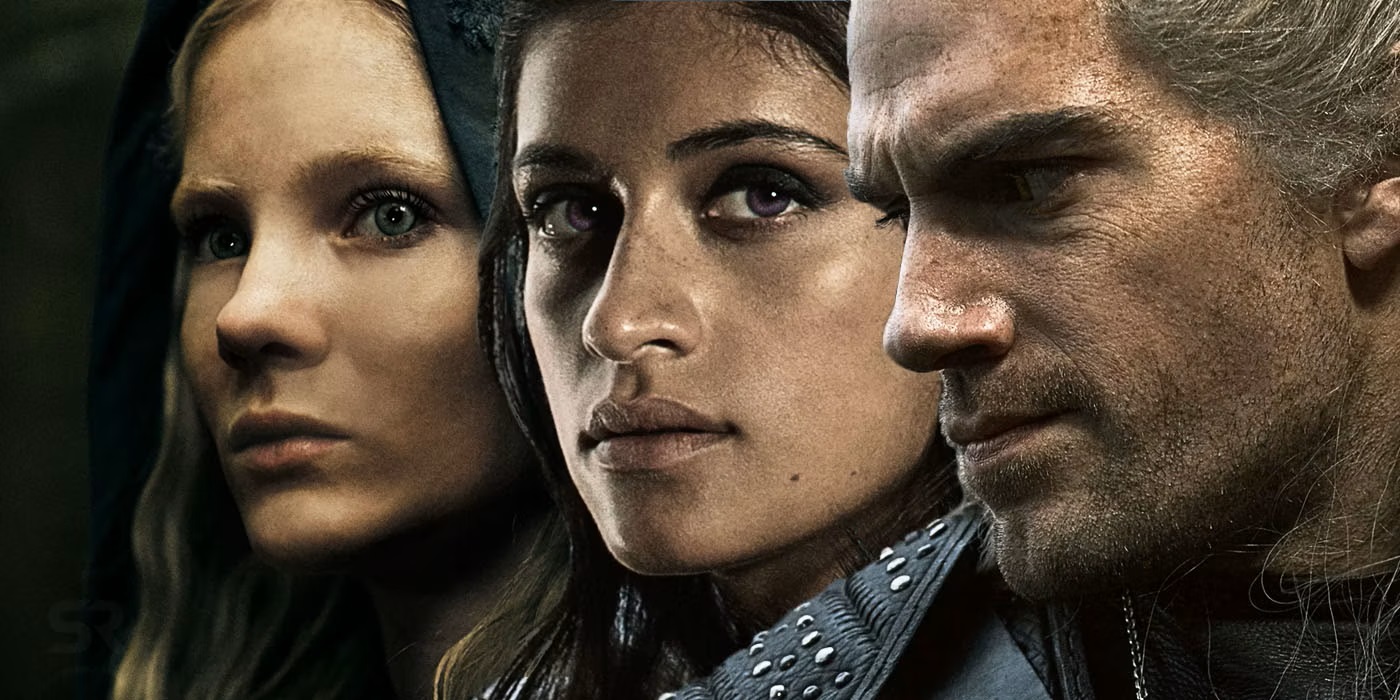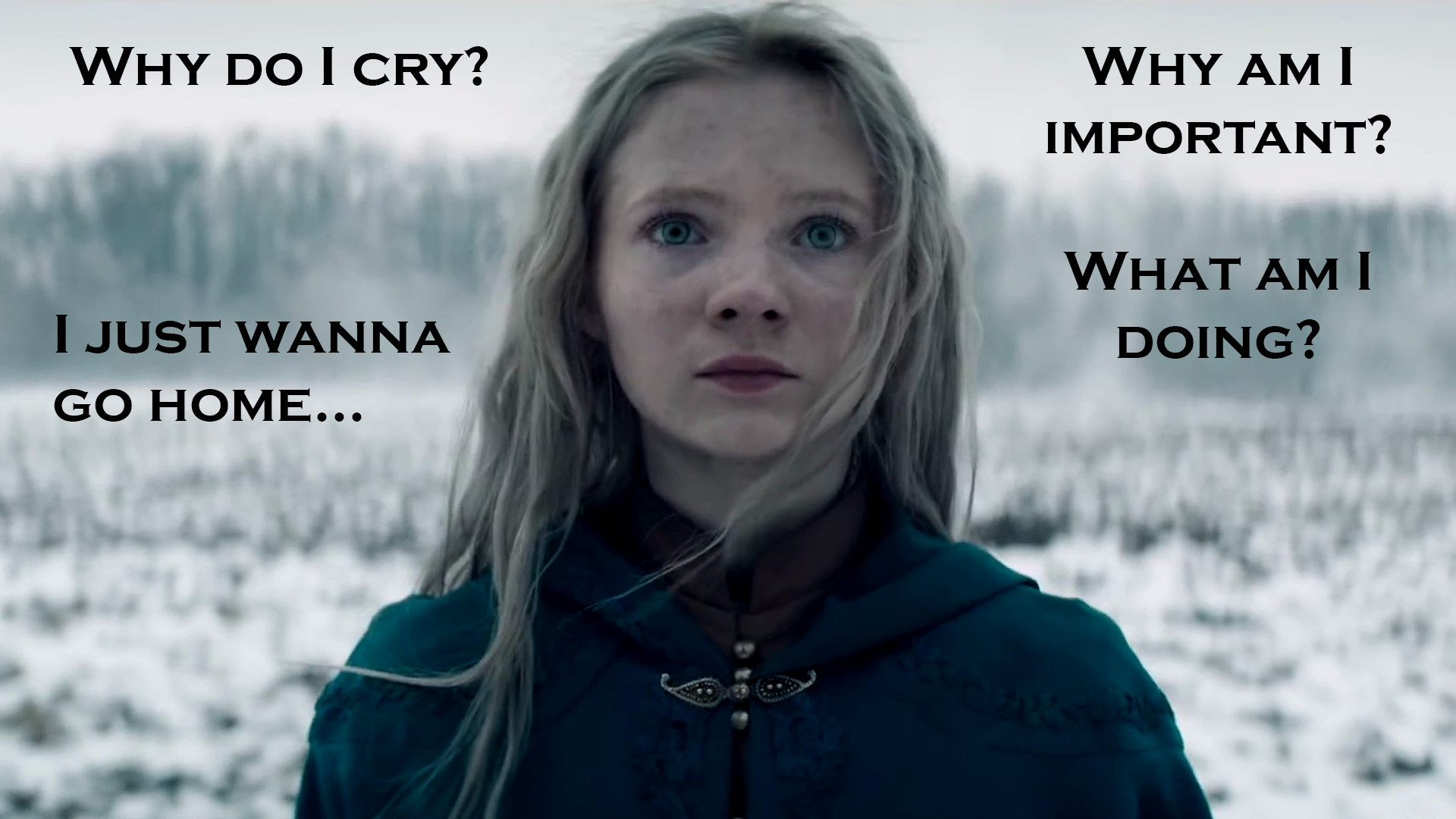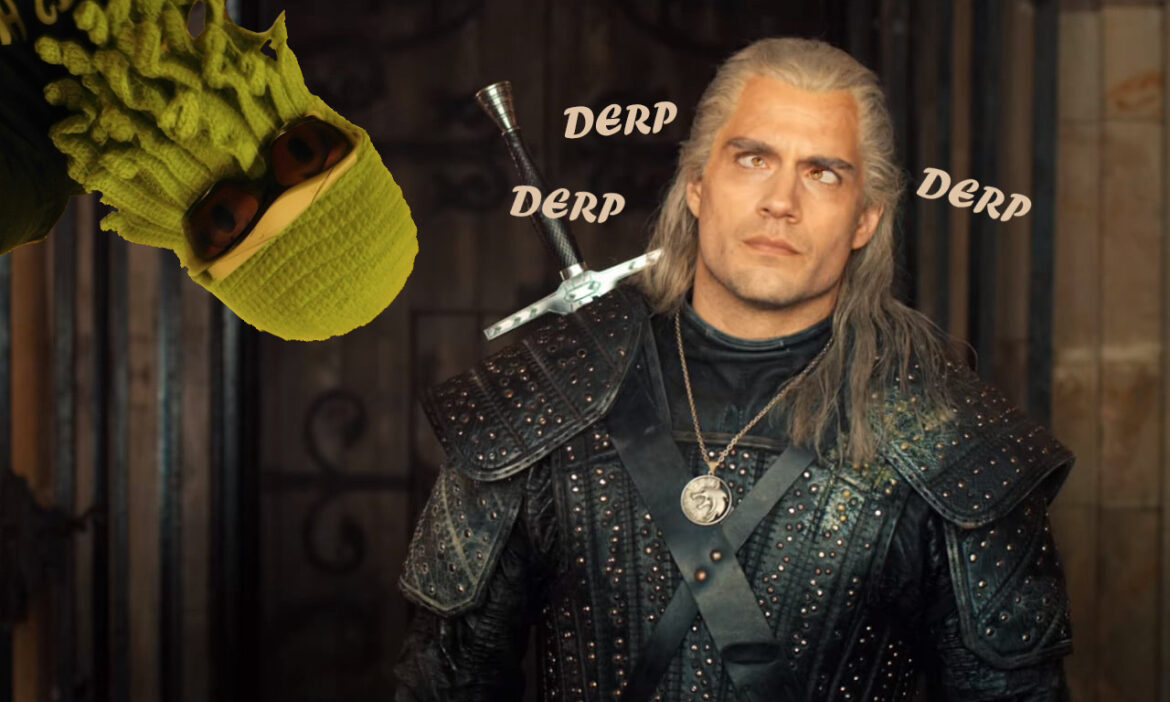The Netflix adaptation of The Witcher is some of the best content added into the franchise ever, let’s admit that fact first. But “the best” doesn’t mean excellent. I contrast this series with a low-budget Polish series I watched years ago based on the same lore, which had a fraction of this budget and a storyline that made even less sense. Netflix is not a small company and they do not have the limitations of Polish television programming, so giving them free passes is out of the question.
I’ve now watched all three seasons of the series. Know this, before I sit down to type with my keyboard about any media, I’ve watched every episode of the series, skimmed the credits to the last name of the game. In my company, we complete projects. What I’m saying encompasses my watching of everything that is currently available for viewing.

Sometimes you know where things are going from little hints, like when a woman cannot stop telling you about the premarital BDSM sex she had with numerous ex-boyfriends. The older I get, the more I realize that first impressions really are quite accurate. I knew from the pilot episode that this would be annoying. The clusterfuck that fans were in for was plenty obvious. Now that I’m watching season three, the craziness has not subsided, nor has the cohesion of the storytelling increased.
At the center of the plot is Ciri, a white-haired lady witcher. She’s a half-elf human. She’s the object of a convoluted political scheme involving the many kingdoms of The Continent, plus the elves. And all that scheming is a motherfucking headache to follow. The later episodes of the third season show the climax of the scheming. As I watched the fiery choreographed battle, I felt no chills, despite the riveting ultra violence. Because I could not follow what the fuck was going on. There’s a lot of characters from multiple kingdoms. Everyone has their own personal agendas that align more or less with the myriad of ambitions of their respective regional rulers. And somehow Ciri is the most important part of this conflict.
The problem is, the importance of Ciri in everyone’s plans is based on prophecy, nothing she’s actually done. She’s a very normal girl who people say is some kind of magical prodigy destined to bring great change. How?
Let’s establish something important. Ciri truly is nothing special. Everyone and their mother in this world uses insane magic or lives practically forever. The setting is so power-creeped, Ciri’s ability for sporadic visions hardly impresses. She can barely control her powers, she learns slowly, she struggles constantly. Why is she the one with the destiny, and not one of the other dozen magic-wielding people? As it appears, she’s only important to the plot because she’s dear to the writer. She also has little personal stake to partake in any of the conflict. Ask yourself, why should she put herself in huge danger when her relationships to the characters and the world are so lacking in depth?

But this lack of personal stakes has always been the problem with The Witcher franchise. Geralt has no family, he is a neutral character who is both a human and a mutant, making his allegiance contested in the racial conflicts of humans, elves and the dwarves. In the Assassins of Kings, you could choose to ally yourself with the humans or the minorities. This neutrality worked wonderfully in the games, but it creates this problem, that Geralt should by all logic be a self-serving character who avoids life-threatening conflicts. Same for Ciri and Yennefer. You have to insert a lot of your own projection to fill in the blanks.
That’s why the big battle in the latter half of season three is far less epic than it should be. Because nothing makes enough sense for the drama to flow naturally. Relying on prophecy and visions as your plot devices is weak writing.
The series focuses way too much on its overarching plot and invests little in developing the characters and their relationships beyond surface-level. They need heavy reasons to take personal risks. To be a hero, you need deep personal feelings involved, such as a yearning for justice, sense of duty, a need for connection, acceptance, happiness, self-actualization, revenge, or at least exposure to great suffering that deepens their empathy for other people’s struggles.
Just contrast with the backstory of Spiderman: Peter Parker ignored a petty criminal who then killed his beloved uncle, now Spiderman busts petty criminals on a daily basis to make the world a better place, but also because fighting crime alleviates his guilt from letting his uncle die. Simple and relatable personal stakes!
There are certainly attempts at this in The Witcher, with many scenes hinting at Ciri filling the role of a surrogate daughter in Geralt’s lonely and violent life. But events unfold at such a hectic pace, it doesn’t feel very believable.
Way too much is happening. Somebody got excited and dropped the ball. When the story should’ve focused, in my opinion, on Ciri and Geralt, you know, the central characters, the numerous side characters have so many unresolved tensions, by the time they get to resolve their issues with swords and spells, you’re quite disengaged.
This series has a lot of problems, there’s just too much going on. The plot holes are plenty, but not a problem in themselves, if only the tradeoffs led to an overall satisfying story. To be brutally real, you can fuck up the plot of your story in a myriad of ways without frustrating the audience, because most people enjoy media without a thought in their heads, but what you cannot fuck up are the motivations of the characters. That is felt by audiences.


